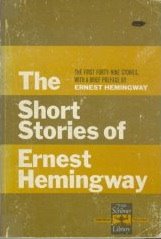 Outliers is Malcolm Gladwell's third book, and it's clear that his unique perspective, great writing, and ability to search outside the box has served him well. Gladwell is what I think of as a sociological writer. He looks for connections between behavior and society, and how they interact. In Tipping Point, that connection was the interaction of people spread ideas or diseases and how small things turn into huge wildfires. In Blinking Point, my least favorite of Gladwell's books (which I still liked considering), Gladwell explores the power of first instincts, and how usually we're right on but fail to listen to ourselves.
Outliers is Malcolm Gladwell's third book, and it's clear that his unique perspective, great writing, and ability to search outside the box has served him well. Gladwell is what I think of as a sociological writer. He looks for connections between behavior and society, and how they interact. In Tipping Point, that connection was the interaction of people spread ideas or diseases and how small things turn into huge wildfires. In Blinking Point, my least favorite of Gladwell's books (which I still liked considering), Gladwell explores the power of first instincts, and how usually we're right on but fail to listen to ourselves.All told, Gladwell takes ordinary things and finds fascinating explanations. Then he follows that up with intriguing examples. Outliers is no different. Here, Gladwell investigates success. More specifically, he wants to get at those who are enormously successful: the founder of the internet, The Beatles, Bill Gates, hockey players, and so on. The fact that he can correlate their successes into sociological cues is amazing in itself, but he takes it one step further. Gladwell's goal isn't just to find why these people are successful, he wants to make the idea of their road to success easier to attain for many more people. Confused? That's because he explains it way better than I do.
Basically, Gladwell takes the usual success story: rags to riches, or self-made, or whatever independent hard work success story you can come up with, and adds to it. He doesn't deny the hard work these incredible individuals had to go through. However, he does add that it wasn't all them. It was a combination of the time they were born, the family they grew up in, the resources available to them, and the amount of practice they were able to bring in. And, oh, also important is the culture they came from.
It's really interesting stuff, and Gladwell handles it well. I personally have a hard time reading books that make cases on statistics, and that is my only gripe with pieces of Gladwell's argument. I worry sometimes that he's such a great writer that he's able to bend his resources to support his argument. But no matter, even if he is, I agree with him. Success is more than just us. I'd be nothing without my wife, my family, excellent access to books and knowledge, my upbringing, the fact that my college got Avid Editing systems the year I started (so I had plenty of time to hoard a bay), and a big helping of old fashioned luck. Right place, right time. Good mantra to have, I think.
Read the book. It's good. The cover is simple, too. Also good.

